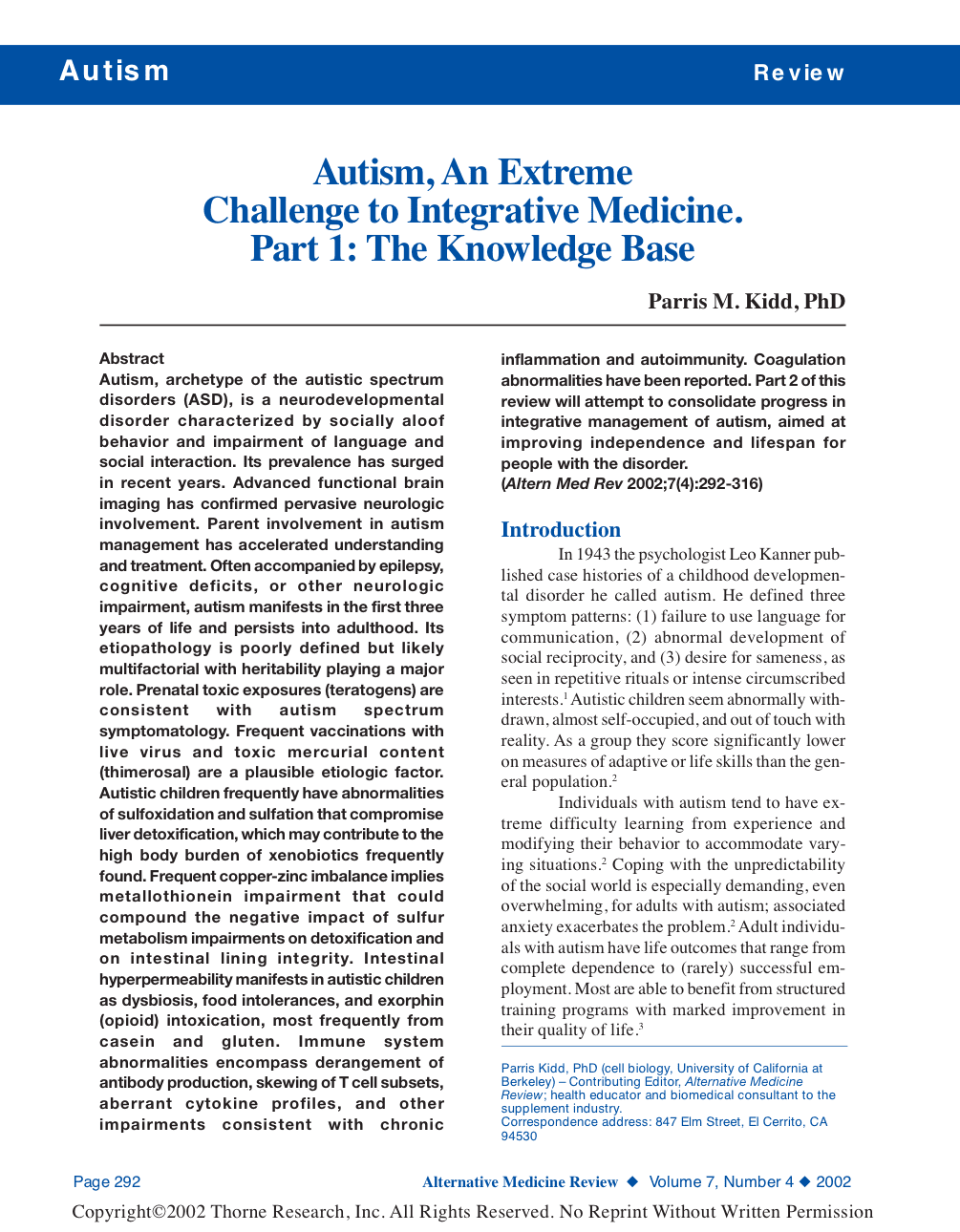Abstract
Autism, archetype of the autistic spectrum disorders (ASD), is a neurodevelopmental disorder characterized by socially aloof behavior and impairment of language and social interaction. Its prevalence has surged in recent years. Advanced functional brain imaging has confirmed pervasive neurologic involvement. Parent involvement in autism management has accelerated understanding and treatment. Often accompanied by epilepsy, cognitive deficits, or other neurologic impairment, autism manifests in the first three years of life and persists into adulthood. Its etiopathology is poorly defined but likely multifactorial with heritability playing a major role. Prenatal toxic exposures (teratogens) are consistent with autism spectrum symptomatology. Frequent vaccinations with live virus and toxic mercurial content (thimerosal) are a plausible etiologic factor. Autistic children frequently have abnormalities of sulfoxidation and sulfation that compromise liver detoxification, which may contribute to the high body burden of xenobiotics frequently found. Frequent copper-zinc imbalance implies metallothionein impairment that could compound the negative impact of sulfur metabolism impairments on detoxification and on intestinal lining integrity. Intestinal hyperpermeability manifests in autistic children as dysbiosis, food intolerances, and exorphin (opioid) intoxication, most frequently from casein and gluten. Immune system abnormalities encompass derangement of antibody production, skewing of T cell subsets, aberrant cytokine profiles, and other impairments consistent with chronic inflammation and autoimmunity. Coagulation abnormalities have been reported. Part 2 of this review will attempt to consolidate progress in integrative management of autism, aimed at improving independence and lifespan for people with the disorder. (Altern Med Rev 2002;7(4):292-316)







